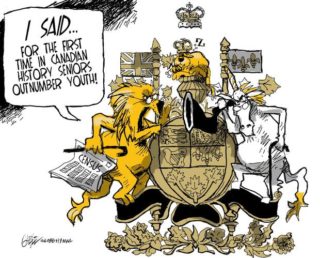The head of the commission investigating why so many Indigenous women fall prey to violence says she is disappointed that the federal government rejected her request for a two-year extension and is allowing just six additional months for the inquiry to complete its work.
Marion Buller, the chief commissioner of the National Inquiry into Missing and Murdered Indigenous Women and Girls, says the brief reprieve from the initial deadline of Nov. 1, 2018, means some important topics will not be covered and the final report will be more narrow in scope than the commissioners had hoped.
“This is not what we wanted, of course,” Ms. Buller said Tuesday after Carolyn Bennett, the federal Minister of Crown-Indigenous Relations and Northern Affairs, announced that the commission would have until April 30, 2019, to submit its report and must wrap up all operations by the end of next June.
The commissioners asked for more time when they submitted an interim report to the government last fall and clarified in March that they wanted another two years and an additional $50-million, on top of the $54-million already allotted.
“We did a very careful and very thorough analysis about the work that needs to be done and the time that realistically we need to do it in,” Ms. Buller said. “And obviously the federal government has rejected that analysis.”
Michèle Audette, one of the other commissioners, said the government’s decision had left her feeling “incomprehension and deep disappointment,” adding that she would take a few weeks to consider her future participation in the inquiry.
But Dr. Bennett told a news conference that, in discussions with survivors, family members, Indigenous organizations, provinces and territories, the government found little support for extending the commission’s mandate beyond the next election in 2019.
This approach acknowledges that there are more survivors and family members that want to share their experiences,” Dr. Bennett said. “However, it also underscores the urgency this government places on seeing the commission deliver concrete recommendations that will address the systemic and institutional issues to help Indigenous women and girls be safe.
All the provinces and territories agreed that the commission may subpoena evidence within their jurisdictions until Dec. 31, but not all have agreed to extending those powers, Dr. Bennett explained. “If any province and territory did not agree to have those extended, we would no longer have a national public inquiry.”
And it is unclear how much more money the government is willing to give directly to the inquiry to conduct its research. That will be determined with the commissioners in the coming weeks, government officials said.
Ms. Buller says reducing the extension from two years to six months means there are issues that the inquiry will not be able to cover, including provincial differences in the delivery of social services.
“We know that we‘re going to be very limited in further issue exploration in terms of expert hearings and institutional hearings,” she said. “But our first priority is to hear from the families and survivors who have registered with us because we need to hear their truths and their recommendations. That’s critical to our work.”
The commission has heard from about 1,200 survivors and family members, and more than 600 people have registered and are waiting to testify.
The government, meanwhile, is addressing some of the recommendations of the inquiry’s interim report.
It is offering an additional $21.3-million in health support to family members and others who have been affected by the issue and will continue to provide those services for a year after the inquiry’s new end date.
It has set aside an additional $5.24-million to extend, by one year, Justice Canada programs that provide families with information about their missing loved ones and connect them to trauma and grief supports.
It is establishing a commemoration fund of $10-million over two years to honour the Indigenous women who have been lost to violence.
And it is addressing gaps in the criminal-justice system by spending as much as $1.25-million over two years to help organizations review police policies and practices and $9.6-million over five years to support a new National Investigative Standards and Practices Unit within the RCMP.
Still, Ms. Buller says she is disappointed that it took the government until June to respond to the recommendations the commission made last November.
“Families and survivors have been left in limbo, as have all Canadians for that matter, about what the government is going to do about the interim recommendations,” she said. “I think that it does not bode well for the government taking action, as they’ve said they want to do, on our final report and our final recommendations.”
GLORIA GALLOWAY
PARLIAMENTARY REPORTER
The Globe and Mail, June 5, 2018

